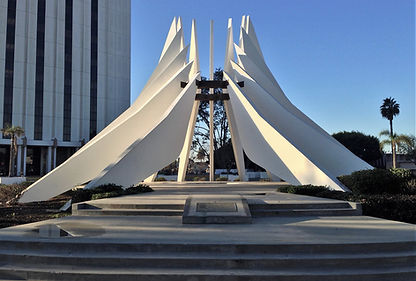Trump Administration Names Long Beach a Sanctuary City, Threatens Federal Penalties
- Citizens Coalition Admin

- Jun 2
- 3 min read
As anticipated under the Trump administration’s renewed efforts to penalize sanctuary jurisdictions, Long Beach, California, has been named one of more than 500 cities identified for obstructing federal immigration enforcement. The designation follows President Trump’s April 2025 executive order titled “Protecting American Communities from Criminal Aliens,” which directs federal agencies to take punitive action against cities with policies that limit cooperation with U.S. Immigration and Customs Enforcement (ICE).
Earlier this year, the Long Beach City Council passed a set of controversial sanctuary ordinances, including a provision that prohibits third-party contractors from sharing data with federal immigration authorities. While the city leadership claims that these actions were taken in alignment with California’s broader state sanctuary framework, they have drawn criticism from both state and federal leaders who argue the policies may undermine national immigration enforcement efforts.
In January 2025, the Long Beach City Council enacted several amendments to its existing sanctuary policies, aiming to bolster protections for immigrant residents amid federal immigration enforcement actions under the Trump administration. These measures, while allegedly aligning with California's broader sanctuary framework, introduced specific provisions that have been subject to public debate and scrutiny.
Key Provisions of the 2025 Amendments to LB's existing sanctuary policies:
Prohibition on Data Sharing by Contractors: The ordinance prohibits third-party contractors from sharing city-collected data with federal immigration enforcement agencies. This move was in response to past incidents where data, such as license plate information, was inadvertently shared with ICE. Long Beach Post
Expanded Departmental Commitments: City departments, including Utilities, Harbor, City Clerk, Police, Auditor, and legal offices, are now required to submit formal letters affirming their commitment to uphold the sanctuary ordinance.
Additionally, outreach was extended to educational institutions like the Long Beach Unified School District and Long Beach Community College Board of Trustees to support these policies.
Increased Funding for Legal Defense: An allocation of $200,000 was approved for the Long Beach Justice Fund, which provides legal defense for residents facing deportation proceedings. This fund, established in 2018, had previously received a $1.1 million expansion in September 2024.
Key Facts
Designation Basis: Long Beach was included on a federal list of sanctuary jurisdictions for limiting cooperation with U.S. Immigration and Customs Enforcement (ICE), including declining to honor immigration detainer requests and restricting the sharing of certain immigration-related information.
Executive Order Impact: The designation follows an April 2025 executive order directing federal agencies to identify and potentially penalize jurisdictions that do not comply with federal immigration enforcement efforts.
Federal Grants at Stake:
Long Beach is eligible for more than $940 million in federal funding through 24 different grant programs.
These funds cover areas such as infrastructure, public safety, housing, and health services, and may be subject to review as a result of the designation.
City’s Position: Long Beach officials state that the city complies with all applicable state and federal laws and reiterate that immigration enforcement falls under federal jurisdiction.
Controversial Aspects and Community Response:
While these amendments were intended to reinforce the city's sanctuary stance, they have been met with mixed reactions:
Incomplete Adoption of Advocacy Requests: Local immigrant rights groups had advocated for the removal of certain exceptions that allow limited cooperation with federal immigration agents and for provisions enabling individuals or groups to sue the city if it fails to uphold the sanctuary ordinance. These requests were not included in the final ordinance, leading to criticism from advocacy organizations.
Concerns from Law Enforcement: Some law enforcement officials expressed apprehension that the expanded restrictions could hinder crime-fighting efforts by limiting the tools available to the police department. Long Beach Post
"The Trump Administration’s designation of Long Beach as a Sanctuary City coincides with the City Council’s scheduled July review of the sanctuary ordinance amendments, based on community feedback and legal considerations."
Potential Impacts and Public Concerns
The recent sanctuary ordinance amendments and the city's designation by the Trump Administration have sparked concerns among policymakers and members of the public.
Critics argue that the City Council’s actions—viewed by some as politically motivated—compromise public safety, limit local law enforcement’s ability to cooperate with federal immigration authorities, and place nearly $1 billion in federal funding at risk.
Critics of Long Beach’s sanctuary policies argue that these measures prioritize undocumented individuals over the safety and welfare of legal residents. They note that by limiting cooperation with federal immigration authorities, the city effectively prevents law enforcement from identifying whether individuals residing unlawfully in the country have criminal histories, ties to terrorism, or affiliations with hostile foreign actors.
Furthermore, opponents point to Long Beach’s ongoing homelessness crisis and claim that scarce housing and social services are being redirected away from citizens in need toward undocumented immigrants, and straining vital city resources.






Comments